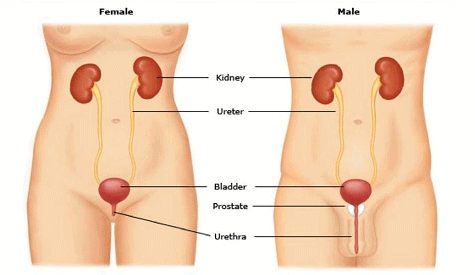What Is Woman Urinary Tract Infection (UTI) Symptoms and Treatment

Imagine a woman’s body as a delicate ecosystem, where even the tiniest disruption can cause discomfort and distress.
One such disruption is a urinary tract infection (UTI), a common condition that affects countless women worldwide.
In this article, we will explore the symptoms and treatment options for UTIs in women, as well as delve into the causes, risk factors, and preventive measures.
Our aim is to provide valuable information and guidance to those seeking relief and well-being.
Key Takeaways
- UTIs in women can cause symptoms such as frequent urination, burning sensation while urinating, cloudy or strong-smelling urine, and pelvic pain.
- Natural remedies can be used as an alternative or complementary approach to traditional treatments for UTIs in women.
- Poor bathroom hygiene habits, sexual activity, hormonal changes during menopause, certain bacteria in the urethra, and the short distance between the urethra and anus can increase the risk of UTIs in women.
- Prompt medical attention is important for diagnosing and treating UTIs in women, which may involve antibiotics or natural remedies such as cranberry juice, probiotics, and D-mannose.
Common Symptoms of UTIs in Women
One of the most common symptoms of UTIs in women is a frequent urge to urinate. This persistent need to empty the bladder can be quite bothersome and can disrupt daily activities.
In addition to this, women may also experience a burning sensation or pain while urinating, cloudy or strong-smelling urine, and pelvic pain. These symptoms can vary in intensity and may be accompanied by fever or lower back pain in severe cases.
When it comes to addressing UTIs, natural remedies can be considered as an alternative or complementary approach to traditional medical treatments.
Additionally, making certain lifestyle changes can help prevent UTIs in women. These may include staying hydrated, urinating before and after sexual activity, practicing good hygiene, and wearing breathable underwear.
Causes and Risk Factors of UTIs in Women
The presence of certain bacteria in the urethra and the short distance between the urethra and anus are key factors contributing to the high incidence of urinary tract infections (UTIs) in women. Understanding the causes and prevention of UTIs is crucial for serving women who seek natural remedies for this common health issue.
Some important factors to consider include:
- Poor bathroom hygiene habits, such as wiping from back to front after using the toilet, which can introduce bacteria into the urethra.
- Sexual activity, as it can increase the risk of bacteria entering the urinary tract.
- Hormonal changes during menopause, which can lead to thinning of the urethra and increased susceptibility to infection.
By addressing these causes and implementing preventive measures, such as practicing good hygiene, staying hydrated, and urinating before and after sexual activity, women can reduce their risk of UTIs.
Transitioning into the subsequent section about diagnosing a UTI in women, it is important to be aware of the symptoms that may indicate an infection.
Diagnosing a UTI in Women
To accurately diagnose a UTI in women, healthcare professionals may use a combination of symptoms, physical examinations, and laboratory tests. Symptoms of a UTI may include frequent urination, a burning sensation during urination, cloudy or strong-smelling urine, and pelvic pain.
During a physical examination, the healthcare provider may check for tenderness in the lower abdomen or back. Laboratory tests, such as a urine culture, can confirm the presence of bacteria in the urine.
It is important for women to seek medical attention promptly if they suspect a UTI, as untreated infections can lead to more serious complications. While there are various home remedies that may help alleviate symptoms, such as drinking plenty of water and taking over-the-counter pain relievers, these should not replace medical treatment.
Transitioning into the next section, let’s explore the treatment options for UTIs in women.
Treatment Options for UTIs in Women
Various antibiotics and natural remedies, such as cranberry juice or probiotics, are common treatment options for UTIs in women. When it comes to natural remedies, there are a few key options to consider.
- Cranberry juice: The tart and refreshing taste of cranberry juice not only helps to soothe the symptoms of a UTI, but it also contains proanthocyanidins that can prevent bacteria from adhering to the walls of the urinary tract.
- Probiotics: These beneficial bacteria can help restore the balance of good bacteria in the urinary tract, reducing the risk of UTIs and supporting overall urinary health.
- D-mannose: This natural sugar found in fruits like cranberries and apples can help prevent bacteria from sticking to the urinary tract walls, allowing for easier elimination.
While natural remedies can be effective, it’s important to remember that antibiotics may be necessary in more severe cases or when symptoms persist. It’s always best to consult with a healthcare professional to determine the most appropriate treatment option for your individual situation.
Preventing UTIs in Women
Several effective methods exist for preventing UTIs in women. Along with proper hygiene practices, such as wiping from front to back and urinating before and after sexual activity, there are also natural remedies that can help reduce the risk of developing a UTI. These remedies include drinking cranberry juice or taking cranberry supplements, which have been shown to help prevent bacteria from adhering to the urinary tract walls. Another natural remedy is D-mannose, a type of sugar that can prevent bacteria from attaching to the urinary tract. Additionally, increasing water intake and avoiding irritants such as caffeine and alcohol can also help maintain urinary tract health. By incorporating these methods into their daily routine, women can take proactive steps to prevent UTIs and promote overall wellness.
| Natural Remedies for Preventing UTIs |
|---|
| Cranberry Juice or Supplements |
| D-Mannose |
| Increased Water Intake |
| Avoiding Caffeine and Alcohol |
| Good Hygiene Practices |
Frequently Asked Questions
Can Men Also Get Urinary Tract Infections (Utis)?
Yes, men can also get urinary tract infections (UTIs). Common causes include urinary tract abnormalities, prostate problems, and sexual activity. Cranberry juice may help prevent UTIs in men, but more research is needed to confirm its effectiveness.
Are There Any Natural Remedies or Home Remedies for Treating UTIs in Women?
Natural remedies and herbal treatments can be effective in treating urinary tract infections (UTIs) in women. These alternative options provide a gentler approach and may include cranberry juice, probiotics, and increased water intake.
Can UTIs in Women Lead to More Serious Health Complications?
UTIs in women can potentially lead to more serious health complications if left untreated. It is important to take preventative measures such as maintaining good hygiene and staying hydrated to reduce the risk of long term effects.
Is It Safe to Have Sexual Intercourse While Experiencing Symptoms of a Uti?
Sexual intercourse while experiencing symptoms of a UTI is generally not recommended as it can exacerbate the infection and increase discomfort. It is important to prioritize UTI prevention by practicing good hygiene and seeking appropriate treatment.
What Can Women Do to Strengthen Their Immune System and Reduce the Risk of Utis?
To strengthen the immune system and reduce the risk of UTIs, women can incorporate lifestyle changes such as maintaining a balanced diet, staying hydrated, practicing good hygiene, avoiding irritants, and managing stress levels effectively.









